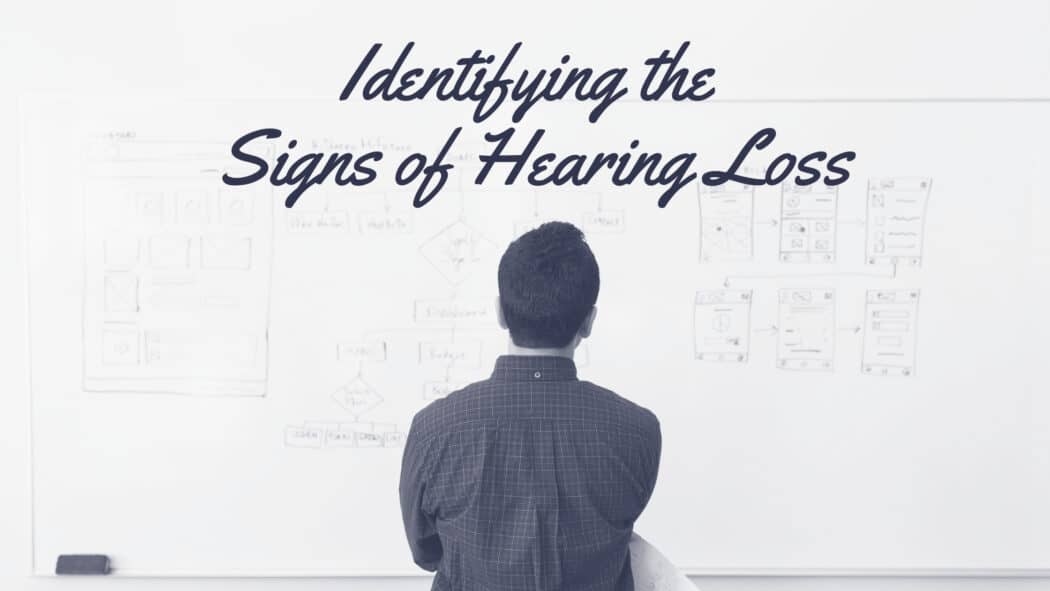According to the Centers for Disease Control and Prevention, hearing loss is the third most reported chronic condition in the United States. Among people over the age of 12, about one in eight has hearing loss in both ears. And yet, it’s a topic seldom discussed.
It seems that many of us are unaware of the symptoms of hearing loss until it makes an appearance in your own life. So, what are the signs that your hearing health needs attention?
How does hearing loss happen?
There are various types of hearing loss, the most common of which is sensorineural hearing loss. This is when the important architecture of the inner ear or the auditory nerve is damaged, thereby impacting the hearing process itself. There are myriad causes, like a loud noise event — either at once or gradually over time, illness, medications, hereditary conditions or simply because of the normal aging process. While there is no magic pill to restore lost hearing, there are certainly ways to intervene and improve one’s hearing experience. But, how can we determine if hearing loss is even an issue for us?
Pay attention to subtle changes
Age-related hearing loss and noise-induced hearing loss often occur gradually over time. For this reason, it can be difficult to pinpoint exactly when the onset of hearing loss occurs. Moreover, because the degrees of hearing loss can be so subtle, you might go on for quite a while — slowly adapting to your new hearing — without even noticing a change.
Conversations become difficult to understand. Speech, or your ability to understand others speaking, is a key indicator of hearing loss. It might seem to you as if you hear just fine and everyone is mumbling around you all the time. This is because although the volume of your hearing hasn’t changed, the range of sound frequencies you hear have decreased. Damage to inner ear nerve cells, either from noise exposure or due to the normal wear and tear of aging, often results in the inability to hear high frequency sounds.
Holding a conversation in a crowd is unmanageable. You might be experiencing hearing loss if you notice yourself unable to follow conversation easily in a crowd. This is because one sign of hearing loss is an inability for your ear to distinguish between background noise and the discussion in front of you.
You have difficulty hearing consonants. Because of the inability to hear high frequency sounds, people with hearing loss are less likely to hear consonants. While vowels are typically spoken in a lower frequency, consonants are often higher pitched.
Your television or radio volume is sky high. Have people in your life remarked upon your unusually loud television or radio? What you hear as a lack of clarity coming from your television speakers might compel you to keep turning up the volume, but the problem might be your impacted hearing health.
Your anxiety in social settings is higher than normal. As we’ve already said, people with hearing loss might not really be conscious that their hearing is impacted. What they might be aware of, though, is a gradually increasing dread of social interaction. If your hearing is marred, conversations with friends, family, loved ones, or even strangers will likely become more difficult and it’s only natural that we begin to avoid difficult or uncomfortable situations. If you’ve noticed that you’ve become withdrawn lately, you might want to see if hearing loss is playing a role.
The advantages of recognizing hearing loss
While any age-related or noise-induced hearing loss is usually irreversible, there’s still a lot of hope in these situations. For one, with the right intervention, you can completely enhance your hearing experience. The hearing aid industry has advanced significantly and new technologies are being debuted all the time.
There are also real benefits to exploring support groups or message boards about hearing loss. There, you can simply find a receptive ear or learn essential tips and tricks to living with hearing loss from people who’ve been there, too.
Schedule a hearing test today
Fortunately, although the signs of hearing loss may be subtle, the results of a hearing test always bring clarity. Scheduling a hearing test is simple and you can pair up with a trained audiologist to guide you through any treatment avenues you decide to pursue!

